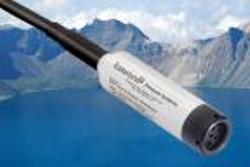May 3 2010
Pressure Systems, manufacturer of precision level and pressure instrumentation for environmental water usage and water resource applications, now employs laser welding to ensure uniformity and consistency in manufacturing, while decreasing weld size and boosting product quality.
 Laser welding
Laser welding
Laser welding employs a highly concentrated laser beam to project an extremely powerful burst of light onto metal components causing them to become molten and combine together upon cooling. Pressure Systems is now able to weld the housing of its transducers within seconds, while minimizing the weld overlay on the housing of the transducer. This provides a more reliable seal and less stress on internal components due to decreased heat generation.
Traditional TIG (tungsten inert gas) welding, typically used by most manufacturers in the production of transducers, is both time consuming and prone to human error, which can adversely affect the component. It also creates a much larger weld, adding to the outer diameter of the transducer, a disadvantage in space-constrained applications such as drop tubes where transducer diameter is important. In addition, heat generated from a TIG weld can potentially cause damage to internal electronic components, whereas laser welding emits much less heat.
Pressure Systems' new welding technique is performed solely by computers that control all facets of the welding process including sizing, input power and weld beams to ensure accuracy, repeatability and overall quality of each transducer.